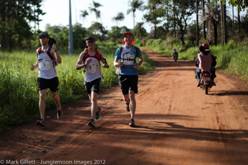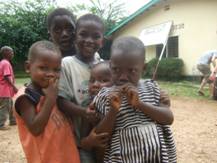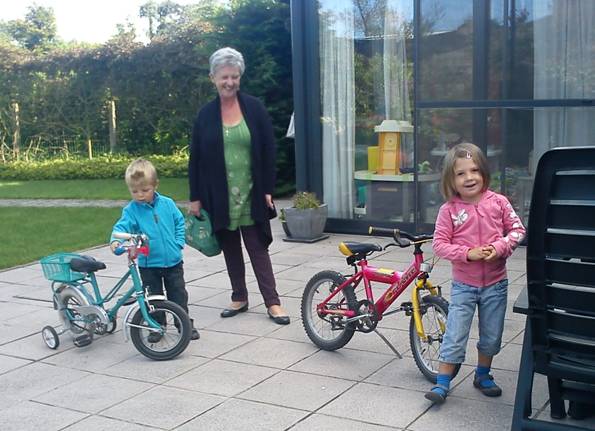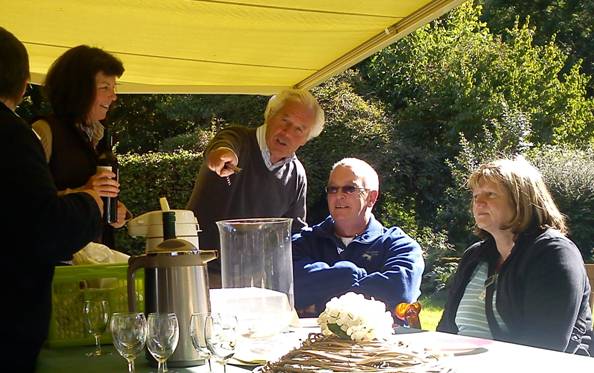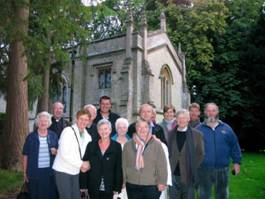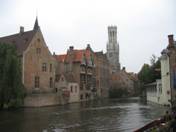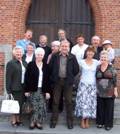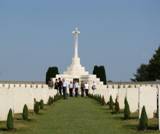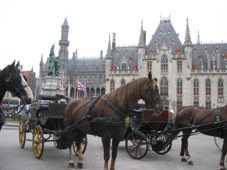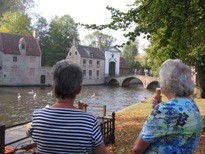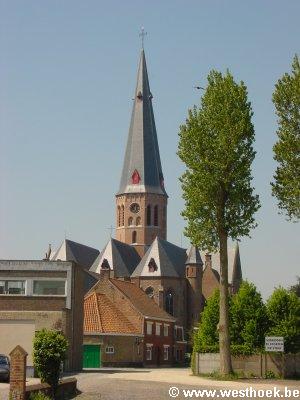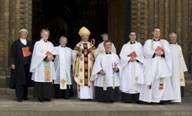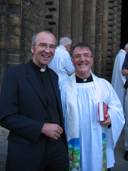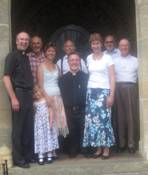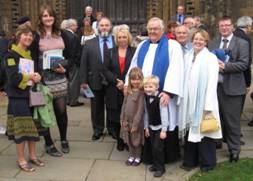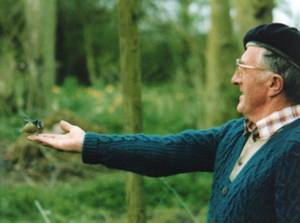Community SpiritThe Community Magazine for the Middle Rasen Group of Parishes |
|||||||
Your on-line access to the community magazine for the Middle Rasen Group of Parishes. See who does what in the production team! Please send articles for inclusion in Community Spirit using the email link above. Regular Spots Reports Why give up Chocolate for Lent Memories Tony Trevor ~ Tells it like it was ! Julia Pullen ~ Chasing Rainbows Janet Pitchforth ~ History of my Mum David Atkinson ~ A Bride from 1999 Local Memories ~ Jessie Hather Beryl Reynolds ~ an afternoon walk
Reel Issues Films After Lockdown ~ films will be shown on the large screen projector in South Willingham Parish Hall, 7pm for 7.15pm, with the option of meeting up Thursday of the same week to have a chat about the film & life in general - BYO drink to the Thursday session. Editors : Veronica Chamberlin, Ron Myland and Julia Weeks Advertising – Sue Pearce 843653 Distribution – Middle Rasen Group – Sue Gleadall 07974 895365 Barkwith Group – Veronica Chamberlin 01673 838446 Production Team – Veronica Chamberlin, Janice Cook, Richard & Anna Harries, Joyce Rhodes, Helen Mclaughlin, Ron Myland, Sue Pearce, Julia Weeks Designer – Rob Clark – Freelance Designer & illustrator Guest Photographer – Angela Mayne
|
WELCOME to the April 2024 issue Congratulations to Angela Mayne, Mandy Smith and Paul Fuller, our very worthy winners of the Community Spirit Awards. They all work tirelessly in their respective communities, trying to make a difference to the lives of their neighbours. This month I must say a big thank you to the Middle Rasen Community Fund who have kindly donated £260 to the Community Spirit magazine, to Angela Wild who has donated £128 raised from the Middle Rasen Advent Window trail which Angela is instrumental in organising, to the South Willingham Hall committee, Rase WI and the Middle Rasen Churches for their donations - We are grateful to everyone for their kind donations, all of which keep this lovely magazine in print. Our congratulations must go to Gary and Mel Fenwick on the safe arrival of their second Grandchild – Isabelle Rose, daughter to Sophie and Hayden and a little sister for William. Isabelle was born on 29 th February – I wonder whether we have had a ‘Leap-Baby' reported in the magazine since it started, some 15 years ago – 187 editions? If you know the answer to this, please let us know! Again, we have a magazine full of interesting reports and articles. Lots has been going on and now the spring is here, clubs are starting up again – the Middle Rasen Bowls club is looking for new members, why not go along and try your hand at Bowling? The gardening Club has lots planned – do join them at a meeting and learn more about tending your garden. Rase Wi has lots planned as does Barkwith and South Willingham – do support them. Well done Valerie for litter picking whilst walking around Middle Rasen – it is shocking to see how much rubbish she picked up. This is your magazine, please send us your news, views, adverts, reports, jokes, photos etc for everyone to enjoy! Please send your items for the MAY 2024 issue to us at the Community Spirit email address no later than TUESDAY APRIL 9th 2024 (editor) |
COMMUNITY SPIRIT
COMMUNITY SPIRIT BREAKFAST MIDDLE RASEN CHURCH HALL SATURDAY 20th APRIL 9– 11AM
BACON, EGG SAUSAGE, TOAST TOMATOES, BEANS TEA /COFFEE /JUICE PASTRIES
EVERYONE WELCOME
|
|||||
THOUGHT OF THE MONTH Written By Anna Yates Summer is coming – time to get beach-body ready! In my therapy practice, I have had the pleasure of helping countless individuals in achieving and maintaining a healthy weight over the years, if limited to just one piece of advice, it would unequivocally be this: only eat when you are genuinely hungry. Delving into vintage beach photos from the 1960's unveils a stark reality: not a single soul is distracted by their phone; instead, they are enjoying conversations, games and relaxation. The second even more shocking thing to note is that no one is overweight! Reminiscing on my own childhood, I recall a time when eating while on the move was reserved for summertime ice cream indulgences. Meetings were marked by the rare appearance of a rich tea biscuit alongside a cup of tea and dining out was reserved for special occasions. Instead, when going out with friends, we would go bowling, ice skating, dancing or the cinema, where an interval ice cream was a treat. Yet, I must confess, my teenage years were marred by a struggle with my weight, a consequence of waning interest in sports in favour of boys! This "puppy fat" lingered longer than anticipated, leading to a downward spiral of decreased activity and increasing unhappiness. However, this has provided me with a deep empathy for clients, many of whom have struggled with weight issues throughout their lives. Regrettably, the world today paints a grim picture in terms of health, with obesity, diabetes and autoimmune diseases rampant on a global scale, manufactured food and fast-food industries shouldering most of the blame. My advice for those yearning to achieve beach-ready bodies for the fast-approaching summer is simple: only eat when you are genuinely hungry. If you are feeling lonely – call a friend, get out, volunteer at your local charity shop. If you are feeling angry, frustrated, sad or experiencing any other negative emotion – address it. If you are feeling bored – pick up that knitting, painting, writing, start that DIY task that you have been meaning to do for so long, take up a new hobby, read a book, listen to music, go for a walk. If you are tired, take time out for yourself and relax. Comfort food is seldom healthy – no one reaches for broccoli when they are sad! Eating for emotional reasons is simply a momentary distraction – like self-soothing but when we reach for unhealthy foods that we do not need, it is in reality self-sabotaging. So, the next time the temptation to raid the fridge or order takeout strikes, pause and ask yourself: "Am I truly hungry?" If the answer is no, opt for a refreshing glass of water, nibble on a small handful of almonds, go for a walk and move away from the cookie jar! Anna Yates
~~~~~~~~~~~~~~~~~~~~~~~~~ IN LIKE A LION AND OUT LIKE A LAMB A message for March from the Revd Heather ~~~~~~~~~~~~~~~~~~~~~~~~~ TO RECEIVE OR NOT TO RECEIVE Some of you may be joining your local church congregations to celebrate this Eastertime (you'll be very welcome!). Since covid all of us are more aware of how germs spread. When covid infection rates were high, churches didn't use the common cup, but instead you may have received a wafer that had been dipped into the wine (intincted). Most Anglican churches have gone back to using the chalice for people to drink from. However, I think all of us involved in ministry are aware that some people are very vulnerable to infection, either because of their age, or because they have a health condition that affects their immune system. If you are vulnerable, you may feel that it's not safe for you to drink from the chalice. Over the years there have been many different fashions in how people receive communion, and for a long while it was unusual for the congregation to receive it at all, in those days the priest received on the people's behalf. Our customary practice is to offer both the bread and wine to everyone, and our community is strengthened by sharing together like this. However, receiving ‘in one kind', i.e. having just the bread or just the wine is a perfectly valid communion. The Notes to the Celebration of Holy Communion at Home or in Hospital, and for the Distribution of Holy Communion at Home or in Hospital tell us that ‘where necessary [Holy Communion] may be received in one kind, whether of bread or, where the communicant cannot receive solid food, wine.' So, if you feel that your health means that it isn't advisable that you drink from the chalice, please don't do so. Join with us, celebrate with us, take the chalice when it is offered to you without drinking from it, just hand it back and keep your own health safe. We'd much rather you felt able to join with us, whatever your health concerns!! Every blessing, Revd Annabel ~~~~~~~~~~~~~~~~~~~~~~~~~ |
|||||||
Did you know that marriage revokes a Will? In 1996, Serena wrote a Will leaving everything to her niece and nephew. In 2008, Serena married Kate. In 2022, Serena died. Serena's marriage had the effect of revoking her Will (whether she realised it or not). So, Serena is treated as having died without a Will meaning that Kate inherits some, if not all, of Serena's estate. The niece and nephew, in this example, inherit nothing. Lesson : When somebody passes away and it appears that they have a valid Will, the Executors should just be mindful that if the person married after the Will was written, it is revoked and can no longer be used for Probate. Jemal Deo (Solicitor) | 1673 274427 ( www.deo-law.co.uk ) ~~~~~~~~~~~~~~~~~~~~~~~~~ Living Advent Windows ~ Advent Trail I hope many of you have walked around Middle Rasen in the evenings enjoying the beautiful Advent windows / displays which have been illuminated to celebrate the festival of Christmas. As I write this not all the displays have been lit up – mine included – it really is a wonderful walk around the village seeing the beautiful creations. Thank you to everyone who has taken part in this lovely Middle Rasen tradition and a special thank you to Angela for all the hard work she puts into organising the event. Julia ... Dec 23
~~~~~~~~~~~~~~Your Reports, Articles and Memories ~~~~~~~~~~~~~~~~
The first issue of the magazine went out on November 2008. The front cover was of Violet and Trudy Brumby, two local land girls. The magazine had an article recalling their memories of their time in the Women's Land Army. Both of them had just receive their commemorative badge in recognition of their efforts. In 1941 they were sent to Cooper's farm at Otby. They stayed in a local youth hostel and it was a tough time for the young women. They worked on the land from 7.30 am till 5pm everyday. During their time on the farm they would often see squadrons of planes flying above. One day they saw a spitfire shot down at Normanby Le Wold, they rushed over to try and help the Polish pilot but sadly he was already dead. Not everything was bad, they both found romance and married their future husbands, Bill and Don Brumby. ~~~~~~~~~~~~~~~~~~~~~~~~~~~~~~~~~~~~~~~~~~~~~~~ WHAT CAN YOU SEE IN LINCOLN CATHEDRAL? Did you know that the Blessed Virgin Mary is the patron saint of Lincoln Cathedral Church. A statue of Mary was commissioned in 2014 and can be seen when visiting this historic building. Mary was revered as Protector of Lincoln in the Middle Ages, and her 7ft figure gazes down the length of the Cathedral. Her blue cloak and brown tunic are symbols of heaven and earth. She is holding the Christ child between the two. A fun game to play with the family is to hunt for the biggest fossils in the huge slabs of limestone making up the floor of the vast Nave of the Cathedral. Lincoln Cathedral was built from Lincolnshire Limestone which was dug up from the Cathedral's own quarry. If you don't know where to start, ask a guide and they will point you in the right direction! We have all heard the stories about the Lincoln Imp! The stories vary, but the most famous one is that the mischievous imp was causing trouble all around the Midlands. When he and his friends chose to visit Lincoln and cause some more mischief, the angels intervened and turned him into stone thus making an example of him! Beware all you mischievous children! He can be seen at the top of one of the pillars near the statue of the Blessed Virgin Mary. There is a light there which will shine onto the imp, if you put 20p into it. On the South side of the main transept is a huge, beautiful, round stained-glass window known as The Bishop's Eye. The window dates from around the 1300s and shines like a beautiful jewel when the sun shines through it. It is said to invite the light of the Holy Spirit through it into the cathedral. In the South choir aisle next to the entrance to St Hugh's Choir is the apprentice wall. This was created by apprentice stonemasons who were learning their craft. Each apprentice would carve a stone for the wall. You will see flowers there and an animal – have a look to see who is hiding here! Below the magnificent organ, the Father Willis Organ, you will find the stone screen. Here there are some fine examples of intricately worked carvings. Originally, these would have been painted in bright colours but there is very little colour left now. You will however see faces, although no-one knows what these faces are depicting. They are a fun addition to the Cathedral - how many faces you can count? There is so much to do and see in this magnificent building. Do visit it and then enjoy a wonderful cup of tea or coffee and maybe some lunch or an afternoon tea in the cathedral café. The shop is worth a visit too!
The Tale of the Tired Labrador .... Julia Weeks
My sister sent this wonderful story to me to share with you all – it certainly made me smile – I hope you enjoy it too! Julia An elderly, tired looking Labrador wandered into my front garden recently. I could tell from his collar and well-fed belly that he had a home and was well taken care of! He calmly came over to me and I gave him a few pats on his head. He then followed me into my house, slowly walked down the hall, curled up in the corner and fell asleep. An hour later, he went to the door and I let him out! The next day he was back, greeted me again, walked inside and resumed his spot in the hall and again slept for about an hour. This continued on and off for several weeks. Curious, I pinned a note to his collar saying: ‘I would like to find out who the owner of this wonderful sweet dog is and ask if you are aware that almost every afternoon your dog comes to my house for a nap!' The next day he arrived for his nap, with a different note pinned to his collar: ‘He lives in a home with six children, two of them are under the age of three – he's trying to catch up on his sleep. Please may I come with him tomorrow?' ~~~~~~~~~~~~~~~~~~~~~~~~~~~~~~~~~~~~~~~~~~~~~~~ AUTUMN The Autumn, or Fall, is my favourite time of the year. The town where we lived in Canada was dubbed by the Queen, "The Prettiest Town in Canada." People would travel to Goderich and cross the bridge just to capture by camera the bejewelled changing colours of the season. It was glorious! My grand-daughter, Rebecca, when 15 years old went to Sydney, Australia for a visit. In her young mind, nothing rivalled Sydney. In a rather dramatic gesture, she came back and said, "Oh. I'm back. I'm in the Autumn of my years!" Meaning, there would never be anywhere as beautiful as Australia for her again. I thought, "If she's in the Autumn of her years at 15 years old, what does that make me?" She's 25 now, so I don't know if she remembers that incident. Another beautiful place on God's good earth is Lincolnshire at Harvest time. It reminds me of Huron County in Ontario. It's a time when the harvest is brought in, when the farmers are busy and all their good work has come to fruition. I am so grateful for this rural community and for the people who are a fine example of rural life at its best. There's a tenacity and hospitality about our community. When I arrived in 2019, there were floods but the good folk worked together and worked through it. We all need a little encouragement from time to time. It's easy to give up, especially after the last couple of years. But the character of God is reflected in His people. His traits include perseverance, hope, and a harvest of righteousness. I'll just finish with a few words from the Bible. The apostle Paul wrote to the church in Galatia. He said, "Let us not become weary in doing good, for at the proper time we will reap a harvest if we do not give up" (Galatians 6:9). There are tough times ahead but I'm certain we will work together as a community to get through it. Blessings to All. Rev Heather
Tony Trevor - Tells us Like it Was A FAMOUS AUTHOR CRASHES LOCALLY My sister-in-law, Betty Logan related this to me: ....Travelling on a bus in the late 40's on the road to North Willingham we spotted a car in the ditch on the S bend near to what is now the picnic ground. The bus driver stopped, and the only occupant in the vehicle was a woman, who fortunately was unhurt, the car escaped any serious damage too. We were able to get her back on the road, and as the grateful lady prepared to drive off, she said, “Thank You so much. Oh, by the way, my name is Enid Blyton.” I wonder whether the car was bright yellow with red mudguards. Perhaps not! THE 1981 FLOODS In late April 1981, Middle Rasen was hit by what must have been one of the worst floods in the village's history. A combination of several days of continuous rainfall and I believe a delay in opening the sluice gates to release the deluge into the River Ancholme had caused the water to back up. There was the unusual sight of a boat being rowed across the entrance to Dovecote, and the late Ruby and Fred Herrick driving down Church Street, were swept into Naylors Drive after attempting to make it through deeper water than they had expected. Everything was fine, except possibly for a verbal assault on Fred's ears when the waterlogged pair finely reached home! Another surge was expected on Sunday evening owing to the high tide on the Humber, so householders throughout the village were beavering away sandbagging their properties. All, except one young couple who seemed completely oblivious to the situation. Finally, a neighbour drew their attention to the water lapping up the pathway getting ever closer to their front door. The reaction was surprising to say the least. They reappeared with a camera and tripod, took some pictures of the watery scene around them, and without a word, went back inside and closed the door on the outside world. Their judgement was, however, spot on, because luckily the second surge never happened. Next morning, villagers were no doubt relieved to see that the water had receded very quickly overnight. There was a massive cleaning up operation to deal with as many properties had been affected but thankfully, the village was no longer under siege. The couple who took the photos did move on. Perhaps they weren't about to take any more chances! What a weekend! ( This memory doesn't actually seem too much of a memory – it seems to stoill be a very current problem! I have lived in the village for 28 years now and have seen bad flooding at least 3 times! Sad that no-one seems to have done anything to solve the issue!) Jan 2023
LIFE ON THE FARM (Poultry Farm) I was never destined to be a farmer, even though I grew up next door to Jacksons farm in what was then Chapel St. Even though I spent some of my early evenings in the late 50's in the milking parlour watching with fascination as John Clark went about his daily milking ritual! Unfortunately, my dad was unable to work for a few years due to ill health, so my pocket money had to come from somewhere. Luckily, my brother, Bernard, worked on a poultry farm in the village, and he got me fixed up with a Saturday job there. So, for two years, most Saturday mornings would see me heading off, bleary eyed, having risen at 8.20, for an 8.30 start at Cobbett's farm. The first thing I would see as I walked into the yard, after dipping my boots in disinfectant would be a genuine gypsy caravan. Ernie, Mrs Corbett's brother wasn't a Romany, but this beautiful home on wheels was his residence for many years. Eventually, he settled for the home comforts of a council bungalow offered. Roy, the owner, had both deep litters where the chickens lived indoors and sheds that accommodated a more free-range lifestyle. The deep litter set-up was very humane. There was no overcrowding and, as it was thought that the egg yield was improved by music, so the radio was on all day. There was no station that played pop music constantly then, except Radio Luxembourg, but that was in the evening, and radio Caroline had yet to set sail, so ‘listen with mother' and ‘Mrs Dales diary' must have encouraged egg laying as well! There was a variety of tasks to perform, including cleaning out drinking vessels in the field huts (not great in the middle of winter), collecting eggs and one task which usually ended with me being covered in creosote. The huts had to be fully disinfected before any new occupancy took place. Creosote does what it says on the tin, and after my efforts, the huts were ready for the fresh intake, but I usually ended up with more on me than was healthy, and it burns! My mum, armed with a bottle of calamine lotion, came to the rescue. Saturday afternoons were often spent covered in this soothing liquid. The egg collecting could be tricky for a 13-year-old who had not had the benefit of any hard labour to harden the skin. The nesting boxes had to be checked even if the hen decided to stay put. There were many times when the present incumbent was not happy with a hand sliding underneath her to check for any contents. Her retaliation for this intrusion into her privacy was a sharp peck on the back of the hand. I dreaded it. However, when cleaning the eggs and packing them, I did get to stamp a little lion on them. That made up for everything! (Tony Trevor -feb 22) Middle Rasen School 1950's Style PART 1 - On a bright and sunny morning in September 1951, at the tender age of 5, I set off for my 1 st day at the village school. I, like all my contemporaries had not had the benefit of any kind of nursery education. It did not exist then! I'm told that my reaction to this change in my circumstance, when asked what I thought of it was, “well, it was alright, but I don't think I'll go again tomorrow!” It was then pointed out to me that this was not an option! My course was set for the next few years! Twelve of us began our formal education on that September morning, not all of them familiar to me, as the catchment area spread out to West Rasen, Bishopbridge and unless my memory is playing tricks, to Lissington also! As most of us did not have the means to travel far then, it must have felt very strange for some of my new classmates to be bussed to another village, for what was quite a long day for the average 5 year old! The new arrivals had caused quite a stir in the caretaking department. Mrs Lockyer had felt under some pressure for a while. We ‘baby-boomers' were dramatically increasing the numbers, which was more than could be said for her wage packet! “I'm already working over my time,” she explained to the governors, “I'm asking for a pay rise!” The governing body came up trumps. It seems such matters could be settled at a local level in those days and the kitchen staff soon saw their pay increase also! Mind you, there was still the inequality that existed in the 1950's pay. Mrs Lockyer received £77.00 per annum, while a man would have taken home £103.00 for working exactly the same hours! The first children to make this life-changing journey, went back as far as 1720, courtesy of a benefactor called John Wilkinson. The village was made up of 2 parishes in those days – Tupholme and Drax. The altruistic Mr Wilkinson bequeathed a sum of money to be used to educate 8 children from each parish. How the 16 were chosen, I don't know, but this was the way it was until 1874, when the school opened its doors to all-comers. As many of you know, there is still a Wilkinson Trust that still exists in the village to this day, giving aid to those who need it! In my day, we were under the watchful eye of 3 teachers, who had the unenviable ask of putting us through our educational paces for the ensuing 6 years. The head was Mrs Staniland who seemed pretty laid back most of the time, which was highlighted by her saying to my pal that the class timetable was there ‘purely for the benefit of the school inspectors!'. No need to worry about Ofsted in those days! That probably explained why the dinner and playtime breaks appeared to vary in length at times, never shorter, always in our favour! Although there was some continuity in our daily grind! To give our writing a legible quality, we received a weekly lesson in copy writing, which almost always included the same piece of poetry; Wordworth's epic poem ‘Daffodils!' Reciting the times tables and a foray into religious education took this form also where psalms 23, 121 and 67 were much favoured! PART 2 - In part 1, I mentioned the head Mrs Staniland, who taught the seniors. Mrs May was our 1 st class teacher. This pleasant, softly spoken lady led us gently and unobtrusively into the world we were now forced to inhabit. The 1 st few months passed quickly and then on the morning of the 6 th February 1952, an older pupil entered our classroom and announced “The King is dead!” King George VI and the royal family had endeared themselves to the nation during WW2 with their “we're all in this together” attitude, so it was, as I recall, a time of great sadness! Queen Elizabeth was duly crowned the following year on June 2 nd – people who owned TV sets suddenly became very popular! Lots of front rooms throughout the land positively heaved with friends and neighbours who didn't want to miss out on the momentous occasion! At the school, there would be a similar moment to savour; the crowning of our May Queen and as I was to be the Paige boy, I was to walk behind Maureen and carry her long, flowing train! I looked very smart - my ensemble being topped off with a bow tie, I seem to recall! I suspect that Maureen and I took a tad of the limelight away from Westminster Abbey, but we were too modest to claim such a thing! Either that or we didn't fancy a spell in the Tower! Between the wars it was possible to take up a teaching post immediately after leaving the classroom as a pupil, having spent an extra 3 years at school, then it was on the job training! Our next teacher, Miss Blades, did just that. She arrived in June 1931 and remained until December 1974. In those 43 years, she taught several generations of the same families. It is fair to say that the regime was pretty strict compared to the Mrs May years! Miss Blades' remit covered a weekly gardening lesson. There was a small lawn area and a group of bushes all bearing fruit, e.g. blackberries, gooseberries etc. The lucky ones got to weed in between this mini forest. Here, you were out of sight and hopefully out of mind, so could pull a few weeds and sit on the dry earth chatting until the call came to make your way back to the classroom! On one occasion the mower was out of action, so Miss Blades came up with a cunning plan. Several of us were each handed a small pair of scissors – like rabbits, we nibbled at the patch of greenery with our ‘tools' until a satisfactory conclusion was reached! Any physical training lesson was usually under the watchful eye of a student teacher. No designer trainers; we had the plimsoll box – a sort of lucky dip for the feet! All sizes were catered for within its cardboard walls – but it was wise to be one of the first if you wanted a pair that matched! Once we were suitably shod, it was out in the playground for the required physical jerks! Another outdoor activity was the country dancing. For this lesson we needed the services of a wind-up gramophone. Unfortunately, this one suffered with the inability to last for a full dance, so it was easy for your attention to be drawn to Mrs Staniland hurriedly rewinding the machine as the ‘floral dance' or similar began to go into slow motion! 1957 saw the 1951 intake move on, either to the Grammar School or to the Secondary Modern. The pace of life we had been used to was to disappear with the advent of the 60's! Life to us did appear simpler and more straightforward – Funny, I can't seem to find my rose coloured spectacles!
The Wrong Target The houses that now make up the village of Newtoft were once the living quarters belonging to R.A.F Faldingworth, a WW2 bomber base that housed 300 Squadron, a polish unit that arrived in 1944 and flew Lancaster's from there on many important missions. The base was also home to nuclear weapons in the ‘Cold War' years of the 1950's. However, at its inception in 1942, it was originally used as a decoy to attract enemy fighters away from RAF Hemswell. This probably explains why Middle Rasen resident Betty Logan (Ferriby), who became my sister-in-law, can relate the following tale. At the beginning of the war, the family lived at Newton-by-Toft, in a farm cottage that sat on the eastern edge of the airfield. Betty's older brother worked on a nearby farm. One evening they were disturbed by the sound of an approaching plane. It turned out that it was not one of ours! This point was made clear when an enormous explosion signified that the enemy aircraft had jettisoned its cargo into the Ferriby back garden! Betty recalls, “as I was only 9 or 10 at the time, I felt no fear, that is until the house started to shake and the landing ceiling fell in!” The local Home Guard was out on patrol and witnessed the incident. Captain Sid Clark said afterwards that they all thought that no one could have survived the attack. Fortunately, luck was on their side and nobody was hurt! Suspicious Behaviour This short tale highlights how vigilant our security forces were at the beginning of the WW1. Fears that there were spies in our midst, were taken very seriously! Middle Rasen man, Percy Rawlinson, went on holiday to Farnworth nr Bolton, Lancashire and innocently took some holiday snaps of the mills that overlooked the Lancashire and Yorkshire railway. Apart from the obvious connection with cotton, there were iron foundries, paper mills, chemical plants and collieries in the area. So it was not surprising that someone found Percy's actions suspicious and reported him to the authorities. This led to quite a large operation. No less than ten police officers, (four railway policemen and six Rasen constables) shadowed young Master Rawlinson for a while, before confronting him with a suggestion that he handed over the offending photos and gave clear proof that he was infact British! As far as I know, he was spared the firing squad! The Rase Heritage Society gave this story to me!
A 50's/60's Childhood in Middle Rasen
All kids love adventure. We ‘baby boomers' had the advantage of not being confined to our gardens. The village was our playground, freedom was the key to a fulfilling day when School was not on the agenda. However we were banned from a field we had taken over, after I found the middle of the bat when playing cricket close to the nearby farm house occupied by two elderly Bachelor brothers, who were taken by surprise when the ball landed on their hearth. Eventually the front door opened and older brother Bill appeared on the door step looking surprisingly calm. There then followed a wonderful example of old Lincolnshire speak; “Yer baint cum ere na moor.”(‘You must not come here again'). On the edge of Bill and Ernie's property was a group of trees, so tree climbing took the place of sport! We didn't come down the way we went up; we decided it would be fun to leap the several feet to the soft-ish ground below! All went well for a while, until David landed badly, twisting his ankle in the process. Of course, he needed our help to make it home. We finally arrived at our wounded comrade's front gate. I would like to report that we saw him to the door and explained what had happened, but there is something in the back of my mind that tells me, we left him at the gate to cope with the last few yards and parental fury on his own. What cowards! Middle Rasen was, until the late 60's (when the council moved in and levelled the road out), blessed with a ford in Low Church Road, that at certain times of the year, turned into a torrent after a heavy period of rain. We rode our bikes through the raised water, feet on handlebars hoping you had reached the correct speed, otherwise there would have been more explaining to do when arriving home drenched to the skin. A pal of mine had some explaining to do to my best friend's dad, the local shopkeeper, when out delivering groceries on an old fashioned shop bike complete with a carrier on the front, during one of these spells of heightened water, he arrived at the water's edge and had to decide on the safe option of crossing by the footbridge or give the ford a try and hope it was not too deep. He chose the latter. He realised his mistake about halfway across, when the boxes were suddenly lifted out of the carrier by the sheer power of the gushing water and proceeded to head off downstream! Tommy quickly made it to dry land and pedalled furiously to the next bridge near to the school, in an attempt to rescue the groceries. He arrived ahead of the saturated goods, and did manage to achieve a rescue of sorts, but there was no way a customer would have been satisfied with the quality of the goods presented by a dripping wet, rather sheepish 14 year old! Fortunately my friend's dad was a kindly soul, so confession time would not have been too bad I think? Why is it that to your average 13/14 year old, if something is clearly out of bounds, it becomes more of a fascination? This was the case with the Church tower, at St Peter and St Paul's. We Choir boy's ached to enter this inaccessible area, but mainly for reasons of safety it was under lock and key — except for one Sunday after evensong, when Tim announced quietly, ‘the tower's unlocked!.' This was maybe the only chance we would ever have! Four of us slipped back into the building after everybody had gone and began our epic journey into the unknown! Now we were able to view our ‘playground' from a completely different perspective. While we were excitedly pointing out our homes dotted around the village and watching the River Rase weave its way through the fields and under the bridges, a lady who lived nearby spotted us. Concluding that we should not be there in the first place, she contacted the Churchwarden! Mr Stainton duly arrived, and unnoticed by any of us, entered the building and locked the door to the bell tower - with we four miscreants still inside! Imagine our shock and surprise when we tried the door. Our jailor soon released us and read the riot act! We took it on the chin and with our tails between our legs, we beat a hasty retreat trying to look as conciliatory as we could, but we had conquered the tower and that was all that mattered! Close to the church there was an old empty detached house that had seen better days. In fact to-day there would have been boarded up windows and doors and signs warning of ‘danger of death' if entered without hard hats and high visibility vests! In the late 50's however, no such rules applied. It was another place to pass the time and in what would have been the kitchen, we found a couple of WW2 gas masks. Fortunately, Middle Rasen was not on Hitler's ‘to do' list, but everyone had to be prepared. Wearing one was a very strange experience though. Apart from the horrible smell of rubber, there was a sense of detachment from real life, because whilst wearing one, we were transported back to the 1940's or hurtling through space pretending to be one of our comic-book hero's, Dan Dare. If we had been discovered, would we have been subjected to the phrase used by farmer Bill. “Yer baint cum ere na moor!” Tony Trevor (various dates)
~~~~~~~~~~~~~~~~~~~~~~~~~~~~~~~~~~~~~~~~~~~~~~~ Counting Our Blessings
Coping with Covid 19. As a mother, a grandmother and with relatives and friends located in different areas throughout the UK, we have missed meeting up with them all. Thus far we have been in lockdowns, tiers, restrictions of movement outside local areas and closures of schools to name but a few. My eldest son rang up one day to let me know that my eldest granddaughter had tested positive for Covid and her sister's test was “inconclusive”. After reassuring me that the girls were not ill but aching and tired, they were quickly banished to their rooms and allocated a bathroom each for their use only. Both girls recovered quickly and then my son tested positive! He was not very well but thankfully did recover. At this point I realised how fortunate we are with the benefits of an excellent NHS, amazingly clever scientists, good housing - often with more than one bathroom per household, healthy diets, plentiful food, televisions and a vast array of amazing kitchen equipment and gadgets. We are also privileged to have social media where we can speak to and see people around the world! Every time I use social media to see my family and friends, I get a wonderfully warm feeling, the next best thing to being with them for a hug! Going back in time to February 1918, the start of Spanish Flu that happened nine months before the end of WW1. Sadly, some soldiers who made it back from the war died from Spanish Flu. There were no effective vaccines or anti-viral drugs to treat flu. Living conditions were poor with slum housing and it was believed that deaths were caused by poor hygiene and public health and safety. Less than half of the population had a bathroom, some even shared a bathroom with neighbours, around a third of houses had “portable” baths, shockingly some had no bath at all. Very few households had telephones, communication was probably through newspapers, writing letters and word of mouth. I cannot imagine what life was like during the Spanish Flu Pandemic but having read about it I count my blessings that technology, science, and medical advances have made life in 2020 bearable. I count my blessings everyday when we receive an update on the number of deaths from Covid 19 and think about their relatives who will never see them again. A Wife, Mum, Grandmother, Sister, Niece & Friend! The Frog and The Tadpoles This is a true story about a 10-year-old schoolboy who once lacked confidence. At the beginning of each term all the boys and girls at his school were asked to apply for various leadership roles, so this young man applied for the role of House Captain. All the applicants were invited to an interview that entailed a presentation, which would demonstrate their leadership skills. After much thought he decided to present the case of ‘the frog and the tadpoles' and it went like this: “A frog lived in a pond with hundreds of tadpoles. One day the frog thought it was time to move along to another pond. This was shocking news for the tadpoles who had never been left on their own before as the frog had always cared for them. All the tadpoles were frantic as they didn't have the confidence to try to organise themselves, they didn't know how to look after each other and the thought of moving to a new pond was terrifying! One day a new older tadpole arrived in the pond and was surprised at how quiet the younger tadpoles were. One of the tadpoles explained that they were all quite frightened, as they didn't know what to do or how they could get to another pond. The older tadpole gave all the younger tadpoles little tasks to do and gradually they began to help each other. Eventually, with the help of the old tadpole, some began taking on more responsible roles. He also reminded them that one day they would become a frog and would need to support their own tadpoles and give them the confidence to relocate when the time came. With the support and guidance of the old tadpole, all the young tadpoles grew to become frogs and managed to leave the pond and relocate to a more suitable habitat.” The panel were really impressed with the presentation and how it illustrated leadership qualities and the young man's ability to encourage others! He is now the House Captain for his year group until the end of this academic year! I am so proud of this young man, not just because he is my grandson but for what and who he is! A Proud Middle Rasen Granny
~~~~~~~~~~~~~~~~~~~~~~~~~~~~~~~~~~~~~~~~~~~~~~~ Caring for others My daughter-in-law, Marie has a sister, Clare, who is a nurse and had been their dad's main carer for over Eighteen months ago Clare moved with dad from an area they had lived in for many years to be near Marie and her family. Not long after they moved, dad unfortunately died leaving Clare, who despite having family near, not knowing any of her neighbours. The first Thursday of clapping for the NHS,' Marie got the children to make a rainbow poster and a thank you to the Best Auntie'. She took them to stand and clap outside Clare's house. Nearly everyone in the close also came out to clap and when they saw the children's messages, word soon got around that Clare was a nurse at the very busy Royal London Hospital. Since then, Clare's new neighbours have taken her under their wing, making sure she has shopping and when she returned home after a long weekend shift, she found that her lawn had been mowed! Clare now not only knows her neighbours, but has friends amongst them too. In this time of great sadness and loneliness, it's nice to hear of people's great kindness and their gratitude to our NHS and all those risking their lives to care for the sick and vulnerable. Elaine Jennings 6/20202020, A Very Good Year for Courgettes After lockdown and most of the restrictions were lifted in 2020, we decided that we ought to go over to France to check up on our little bungalow, as it had been left empty for 10 months. I had recently read a book called “Merde” written by an Englishman. Not long into the book he tells about being in the Correze where courgettes featured very highly with every meal. Our bungalow is in the Correze and this had never been an issue in all of the past 15 years that we had been visiting there. When we arrived at about 9.30pm, after a long and rather tedious journey, we found a bag by our back door containing runner beans, a cucumber, a couple of courgettes and a little welcome note from our English neighbours. How lovely of them, I thought. The vegetables were very welcome and soon eaten. A few days later we went shopping and I bought a few little courgettes from the supermarket as they looked nice and were only €1 a kilo. We hadn't been back long when our neighbours popped over with more beans and courgettes! I fried some courgettes in butter and garlic and put some in a chicken curry too. Another day we went out with friends for lunch in a restaurant known for its good food, but what was being cooked that lunchtime? Yes, you guessed it, it the main course was stuffed courgette, delicious! “Do you like courgettes?” our friends asked, “Jean Luc a friend of ours has given us some and we don't like them very much”. I dutifully took home two of what we would call marrows, one of which I cut up and roasted, the other one I stuffed. While I was busy stuffing the courgette our lovely French neighbour arrived with yet more courgettes! When she saw what I was doing she cried “Ratatouille! - You like?” “Oui” I said. She then went back next door and arrived with onions, more courgettes and aubergines; these weren't like any aubergines I had ever seen before, they were long, thin and pale lavender in colour. She explained that they were a different variety and were very good. “Merci, merci” I said. I bought a kilo of excellent and very cheap tomatoes in our local supermarket and made 2 large oven trays of ratatouille, It was delicious and useful, because I was able to freeze some. The next day our English neighbours came over with the inevitable and some tomatoes. I stuffed yet another courgette, with a different stuffing this time. We also had courgette fritters and some even went into a casserole. Surely this the end of the courgettes? But No, Jean Luc supplied us with 2 more marrows. Our English neighbor, Janr, gave me a lovely recipe for courgette cake. I duly made the cake. It did look really good, but unfortunately I didn't squeeze enough moisture out of the courgettes so it was a bit wet. No one could say I hadn't tried! Near the end of our holiday we invited our neighbours in for apèros. Our French neighbours bought with them a pack of Livos home made pasta (he's half Italian) and the prettiest pumpkin I have ever seen, being small and red in colour. Our English neighbor, Jane said with relief that her courgettes were finished now. “We will bring you some over” cried Livio, Jane was far too polite to refuse. Needless to say, we came home with a courgette and the beautiful red pumpkin. It looked so decorative on my kitchen worktop that I was loathe to cook it, but I couldn't bear for it to go to waste. I turned it into soup, and we weren't disappointed. The courgette wasn't wasted either! To think that when we left home I had said to Gordon “Oh what a shame we won't get to eat our courgettes”……. I am now wondering whether to write a murder mystery, after all I have the perfect title - “Death by Courgettes”! Elaine 7/21
~~~~~~~~~~~~~~~~~~~~~~~~~~~~~~~~~~~~~~~~~~~~~~~~~~~~~~~~ Whilst at school some years ago, our son Jack, found an old stringless, Spanish guitar with a rude word scratched into its beautiful, shiny back. Unable to remove the ingrained expletive, I asked a friend to make me a rainguard for the sound hole and stuffed it in the hedge with some straw and pet fluff inside for comfort. Look who's built her nest in it this season! So go on, get your old teapots, broken saucepans and other junk that's been thrown out during lockdown, find a secret hidey-hole for it and see who comes to self-isolate! Love to everyone! Helen and Michael Robinson. 6/2020
~~~~~~~~~~~~~~~~~~~~~~~~~~~~~~~~~~~~~~~~~~~~~~~~~~~~~~~~ Chapel at Camp 60 - Orkney As I consider the necessary lifestyle changes that this Covid-19 crisis has imposed on us all, I recall a visit I made to the Orkneys a few years ago, diving in Scapa Flow where 74 warships of the German Imperial Navy's High Seas fleet were scuttled on the 21 st June 1919. It was a superb opportunity to explore a living museum in a world-famous diving site. It was whilst here that I came across this remarkable chapel. On the 14 th October 1939, HMS Royal Oak, anchored within Scapa Flow was torpedoed and sunk with 835 crewmen lost. This attack was carried out by U47 under the command of Captain Gunther Prien. After an enquiry, Winston Churchill approved the building of a defence to protect the eastern approaches to the flow. Italian prisoners captured during the North African campaign thus constructed the “Churchill Barriers”. Several hundred prisoners were housed in Nissen huts in ‘camp 60'. Initially, the camp lacked a chapel. In 1943, a combination of circumstances in camp 60 brought together a new camp Commander Major T. P. Buckland, an enthusiastic padre, Father P Giacobazzi and the prisoner artist Chiocchetti. The building of the chapel could not have happened without the goodwill of the commander, the pastoral concern of the padre and the genius of Chiocchetti! Two Nissen huts were made available and placed end to end. The Chancel was the original conception and a great deal of time and care was lavished on it. The alter, alter-rail and Holy water stoop were all moulded in concrete. Behind the alter, reaching up to the sanctuary roof and buttressed by two windows of painted glass, representing St. Francis of Assisi and St. Catherine of Sienna was a lovingly painted Madonna and child - Chiocchetti's masterpiece based on a holy picture that he carried with him through the war. The candelabra were made from scraps of brass and iron and the tabernacle made from the wood from a wrecked ship. The rood screen is one of the main glories of the chapel. The painted interior was uninviting compared to the beauty of the sanctuary! After the war the whole camp, apart from the paths and huts foundations disappeared, but the chapel and St. George with his dragon remain. It has become a place of pilgrimage as people marvel at the fruits of the dedication and cooperation of these people living together in adversity, but sharing a belief in a common faith and making the best use of their time together. Andrew Morrison 6/2020 ~~~~~~
~~~~~~~~~~~~~~~~~~~~~~~~~~~~~~~~~~~~~~~~~~~~~~~~~~~~~~~~ Janet Pitchforth A poem - by Annie Johnson Flint (1866 – 1932)
God has not promised skies always blue, Flower-strewn pathways all our lives through; God has not promised sun without rain, Joy without sorrow, peace without pain.
But God has promised strength for the day, Rest for the labor, light for the way, Grace for the trials, help from above, Unfailing sympathy, undying love.
I have often read this poem and feel it is particularly useful in those times when we are feeling the burdens of life....... Janet Pitchforth
When I write a poem I like it to rhyme, That may not be 'cool', but it isn't a crime! Each time our children achieved something 'worthwhile' I'd create a few verses - to give them a smile. They may not have liked this as much as they should. But what were they hoping for ? - ''Under Milk Wood'' !
Childhood Memories I think we all tend to remember the things we enjoyed in ‘the good old days' of our childhood. For me, these were particularly special memories of lessons I loved at primary school. Because our small Church of England school was in the centre of a quiet rural village in West Yorkshire, we were able to adventure out in good weather on ‘nature walks' - sometimes taking with us our sketch pads (a primitive outline pencil sketch of a tree would be my favourite!) In Clifton, we still had our own village lamplighter (Mr Haines), who would ride his bicycle from one end of the village to the other, accompanied by his spaniel, lighting each gas lamp in turn. I believe that it is because of the memories of seeing him carrying out his work when I was just a child that I especially love Robert Louis Stevenson's poem –‘The Lamplighter: My tea is nearly ready and the sun has left the sky; It's time to take the window to see Leerie going by; For every night at teatime and before you take your seat, With lantern and with ladder he comes posting up the street.
Now Tom would be a driver and Maria go to sea, And my papa's banker is as rich as he can be; But I, when I am stronger and can chose what I'm to do' Oh Leerie, I'll go round at night and light the lamps with you!
For we are lucky, with a lamp before the door, And Leerie stops to light it as he lights so many more; And O! before you hurry by with ladder and with light' O Leerie, see a little child and nod to him tonight! History of My Mum I wonder how many of you have been watching the repeats on TV of ‘Downton Abbey' over the past weeks and months? I'm certain that a lot of us wonder what it must have been like to live in a huge house, and be waited on hand and foot by maids and manservants helping to dress you, cook and lay out your meals, clean your house, as well as seeing to all the other jobs that need to be done - including raking out and preparing fireplaces, cleaning shoes, polishing the silver, arranging flowers etc. etc. My Mum (prior to starting a family), was a housemaid at Kirklees Hall (Clifton, Brighouse) and lived on the estate at ‘The Coppice'. As well as working in the Hall, she would occasionally accompany ‘Sir George Armytage' and take on the role of kennel maid to his dogs! Her Dad (our Grandad) was the estate's Gamekeeper. My Mum and Dad were even invited to hold their wedding reception at The Hall - That must have felt ‘rather splendid' (as Lady Mary might have remarked!) Kirklees Hall was well known for having the grave of Robin Hood in its grounds, (although there are sites elsewhere that reputedly have his grave too!) The story goes that - whilst on his deathbed in a room at Kirklees Priory - he shot an arrow through the window, saying that he wished to be buried where it landed. We sometimes used to visit this burial place, which was surrounded by metal railings, and marvel at the words of his epitaph, carved in to the headstone (written in ‘old English) ‘Hear underneath dis laitl stean ...................Laz robert earl of Huntingtun ..................... Ne'er arcir ver az hie sa geud ........................An pipl kauld im robin heud .......................... Sic utlaws az hi an iz men ...........................Vil england nivr si agen‘ When the M62 Motorway was driven through Clifton, in the early 70's - our old home was demolished. Kirklees Hall is now divided up into several desirable private residences, and has even been featured in the TV programme- ‘Most Haunted!' Janet Pitchforth
~~~~~~~~~~~~~~~~~~~~~~~~~~~~~~~~~~~~~~~~~~~~~~~~~~~~~~~~ A Bride - A Memory from 1999 By David Atkinson I walked across from my vicarage to the church on a bright sunny day with just a threat of showers in the air. I was going to officiate at a wedding. The bride who lived just up the road had decided to walk to church. I kept a wary eye on the clouds as I waited for her in the porch. I wasn't going to get wet. I hoped she wasn't. She arrived safe and dry. I led her up the aisle to the chancel step where her groom awaited her. As I turned to face the bridal couple and the congregation, I remembered the first day of my ministry in the parish. It was another nice sunny day. I was on my way from the vicarage to the post office, when I met an old lady (well, she seemed old then). We stopped for a chat. She asked me if I would pray for her granddaughter. As we stood there enjoying the sun, she was in an operating theatre. She'd been born with a condition that meant she had a curved spine and she was bent almost double. It got worse as she entered her teenage years, so she was having an operation on it. It carried no guarantee of success and was quite dangerous. The slightest slip or misjudgement by the surgeon could leave her paralysed for life. And now five or so years later, there she was in front of me – standing straight upright, poised and graceful, looking as beautiful as brides are supposed to do on their wedding day. I claimed no credit for this and I left it to God to decide whether he or she wanted to do so, but it felt good to share this very special occasion just as I had earlier shared her grandmother's anxious wait for news from the operating theatre. 5/2020 ~~~~~~~~~~~~~~~~~~~~~~~~~~~~~~~~~~~~~~~~~~~~~~~~~~~~~~~~~~ The Rainbow by Julia Pullen Rainbows are a sign of hope sent from God. I remember as a child chasing one down the street, no doubt in the vain hope of finding the pot of gold at its end. Later, through the simple use of a bowl of water and sunbeams through the window, children in my care marvelled at the magic of rainbows I was able to create. Colours are mood creators, used the world over to express emotions and messages. Throughout my life, there have been many colours, but until I met you, I was unaware of the spectrum's wonderful full extent. Red – the colour of love. We met as idealistic teenagers in the first blush of youth. You were popular, sporty and outgoing, whilst I was shy, artistic and hesitant. We became inseparable sweethearts, lighting up each other's days and delighting in our own company. We glowed – overflowing with love for one another. Orange – the colour of gold. As our devotion to a shared future blossomed, we sealed it with the promise of engagement rings. In the autumn after we had met, burnished fields, warm sunsets, it was such a perfect Indian summer. You had become the sunshine in my world. Yellow – the colour of the roses and freesias in my wedding bouquet. Optimism flowed through those early days and months of our marriage. We met each of those challenges head on – relocating as you moved up your career ladder, while I was content to support you from the background. I loved you so much, I would have moved to the Moon had that been necessary. Green – the colour of new shoots. Our beautiful children brought us laughter, tears and a growing serenity in our journey through life. With the ups and downs of rearing our offspring, we calmly settled into daily routines. Each little step they took and each development they made brought us closer. We both became more confident and self-assured – perhaps a little less green after all…. Blue – the colour of clear skies and seas. As our children grew into young adults, we began to spread our wings, flying abroad and cruising the seas. Strong in our bond, we explored the wide blue yonder sailing forward - together. Indigo – the colour of vibrant long summer evenings. With our children now grown and flown, we regained our youth with a varied social life. We were at last able to enjoy parties without worrying about getting up in the morning. It didn't matter if we stayed up until the wee small hours, just talking. It didn't even matter if we didn't talk. We could simply enjoy the tranquillity of the moment. Sometimes we shared these evenings with friends, but, more often we were content to be the two of us. Today represents Violet – the colour of rich, velvety twilight. As the evening wears on we gaze at the deep inky hues of the night sky, wondering at the vastness of the universe and our tiny part in it. Oh! The nights we look at the stars reminiscing on our life and thanking God that we are able to share it. Long ago, the colours in my life were shades of brown, grey and beige. God gave me hope and colour with your presence in my life. Maybe I'm still that child chasing the rainbow down the street, but I have come to realise that the more you chase the pot of gold, the further away it goes. So now, I am content to enjoy the pot of gold that is my life, with my love – my rainbow. 5/2020 ~~~~~~~~~~~~~~~~~~~~~~~~~~~~~~~~~~~~~~~~~~~~~~~~~~~~~~~~~~ Middle Rasen Ladies at Lunch It's hard to believe that we haven't met since last year! Our March lunch this year was cancelled, like all other activities in the village, because of the fear of becoming infected with or spreading the Coronavirus Covid-19. We are all going through difficult times and hope that with our efforts we will all come through this unscathed. Our next lunch is scheduled for June 18 th , 12 noon for 12.30 at Market Rasen Golf Club. The charity we will be supporting in June is the British Heart Foundation, so we are inviting diners to wear something red. Anything will be perfectly acceptable, jewellery, scarf, dress, shoes! We are optimistic that it could happen in June, but if it is the case that we can't go ahead, we will liaise with Janet at the Golf Club to arrange another date for a lunch as soon as possible once the Government has confirmed we are free to socialize! Many thanks for your continued support and we look forward to seeing everyone at our next lunch, which without doubt, will be full of fun, with a party atmosphere and lots to celebrate. For more information contact Anne 01673 842099 or Valerie 01673 843661. Keep safe and look after yourselves. Anne Crawforth and Valerie Wright ~~~~~~~~~~~~~~~~~~~~~~~~~~~~~~~~~~~~~~~~~~~~~~~~~~~~~~~~ INSTITUTION AND INDUCTION OF THE REVEREND BRYAN DIXON AS RECTOR OF THE BENEFICE OF THE MIDDLE RASEN GROUP OF PARISHES - 14TH JULY 2016 By Rosemary Walker More than 200 people gathered together in Middle Rasen parish church on a balmy Thursday evening in July for the induction service of our new rector, the Reverend Bryan Dixon. The service was conducted by the Bishop of Lincoln, the Right Reverend Christopher Lowson, with a sermon preached by the Bishop of Grimsby, the Right Reverend David Court . Also in attendance were our Archdeacon, Rural Dean, and many visiting priests, lay readers and ministers as well as our own local ministry team. The service of induction of a new priest is a serious and legal affair, with oaths of allegiance to authorised worship and to the reigning monarch. However, the responsibilities are not all one way; the congregation too was required to declare their support to work with Bryan to serve the Kingdom of God After these "set pieces Bryan was officially welcomed by our Churchwardens, our local MP, Sir Edward Leigh and by leaders of the local communities. There were prayers and lusty singing of hymns, ably supported by a strong choir. All in all a glorious, joyful service and one fitting to welcome the new shepherd of our flock in Middle Rasen, Newton by Toft. Faldingworth. Friesthorpe and West Rasen . As if that weren't enough, there followed a magnificent buffet served in the church hall and car park. All sorts of scrumptious sandwiches, quiches, sausage rolls, scones, cakes etc were on offer to tempt all palates. Wine and soft drinks flowed, along with friendly conversation. The weather was perfect too, the icing on a glorious cake. Thanks to the many who were involved in making the occasion so memorable. We wish Bryan, Theresa and their family many happy and fulfilling years here with us.
By Jane Lloyd I came to live in Middle Rasen nearly 30 years ago. I had moved many times during my marriage – not to avoid the bailiffs, but because my husband was serving in the Royal Air Force. I was used to packing up the family's belongings and then rearranging them somewhere else to make a home as quickly as possible. The difference this time was that we had chosen to live here, it was not somewhere the Air Force had sent us. We wondered what village life would be like. It was not long before my husband made his way to The Nags Head – probably to have a break from unpacking - and there met a group of people who were to become our firm friends, and remain so to this day. People who did not view a stranger with suspicion but who offered a welcome and in so doing helped us to settle into our new home. We are fortunate here in Middle Rasen. We have a wide number of clubs and organisations, as well as our two churches, and all of them need new members in order to continue and thrive. Yet sometimes we are anxious when someone unknown comes along. Will we like them? Will they fit in? Will they be like us? Will they like us? It is difficult now to think back to those early days and try to remember how I felt the first time I went somewhere new in the village, the first time I met new people, but I do recall going to Chapel and being greeted like a long lost daughter. All the activities that went on were described to me and I could choose which of them I wanted to get involved in, or I could choose to do none at all. The welcoming invitation was given and it was up to me to respond. In the gospels we frequently read of Jesus inviting people to be with him. He does not make any demands or require that they dress or speak in a particular way. Just that they make up their own minds to follow him. He shows us how to offer the same kind of friendly welcome to those we meet as we go about our everyday lives. He asks us to have the courage to extend the hand of friendship and wait to see what the response will be. There is a poem called The Low Road written by Marge Piercy. In it she talks of the importance of living in a welcoming community. It ends with this verse:- It goes on one at a time, it starts when you care to act It starts when you do it again after they said no, it starts when you say “we” and know who you mean And each day you mean one more In Middle Rasen we have the opportunity to be part of our community developing and growing, sometimes in ways we did not expect, as we seek to welcome and involve others into village life. May we have the courage to take that opportunity. TOOLS WITH A MISSION ~ Janice Cook
MEET GRETI Greti has had a heart breaking life with far too much sadness and tragedy for one so young. She lost both her parents and was left looking after her younger brother and sisters. She has also been disabled by polio and walks with the aid of a crutch. She came to one of 'TWAM's" partners, Mindset in Uganda for help. They trained her in tailoring and she is now a very skilled young lady. But all this would have been for nothing if Greti hadn't received a 'TWAM' sewing machine. With her new machine Freti started making school uniforms and quickly gained a very good reputation. She not only earned enough money to support herself and her siblings but I was also able to buy two pigs! Her business quickly grew to 40 pigs and a small shop. All this was possible because someone had generously donated an old sewing machine which TWAM had lovingly refurbished. This is TWAM's amazing ministry giving unwanted tools and equipment the potential to transform a life! Please help! Middle Rasen Methodist Church ... .are working to help "Tools with a Mission" which is a Christian charity enabling people to earn a living and support themselves and their families. In many countries people have few skills, little education and no means of earning a living. A switch from aid dependency to self-sufficiency is impossible without help. TWAM started over thirty years ago, and has since provided this help by collecting and refurbishing tools and equipment no longer required in the UK and sending them overseas for livelihood creation. They build up kits for use in various trades: Builder's tools:-Chisels, hammers, screwdrivers, hacksaws, pliers, trowels, spirit level, tapes. Carpenter's tools:-Saws, planes, chisels, hammers, pliers, screwdrivers, hand drills, clamps, vices. Electricians' tools:-Hammers, pliers, files, screwdrivers, spanners, soldering iron, voltmeter, lamp. Gardeners' tools:-Spade, fork, rake, hoe, sickle, secateurs, loppers, axe, sledge hammer, crowbar, shovel, spirit level. Leatherworkers' tools:-Bradawls, clamps, cutters, hammers, pliers, punches, knives. Motor mechanics' tools:-Pliers, punches, grips, screwdrivers, chisels, metric and adjustable spanners, wrench, hacksaw, drill, socket set, gauges, clamps, squares. Plumbers' tools:-Drill, files, grips, hammers, pipe cutter, hacksaw, solder wrench, blowlamp. Shoemakers/cobblers' tools;Hammers, pincers, rasp, pliers, awl, knife, needles, rivets/soles/heels etc. Garage workshop: Files, pliers, spanners, snips, wrench, screwdrivers, hydraulic jack, screw trolley, battery charger, car ramp, axle stands, winch, soldering irons, electric drill The above lists are key items supplied not a complete list of tools in each kit. Power tools:-Hand and bench drill, sander, planer, jigsaw, circular, band and chop saw, lathe cultivator, rotavator. Children's scholar packs and educational books, Sewing machines: manual, electric and treadle,Knitting machines: machine wool and needles. Haberdashery: needles, cottons, large material pieces/rolls, buttons, zips, Fully working IT equipment. Desktop computers, Laptops, Both running a minimum of Windows XP. Tablets. Further information can be found on their website www.twam.uk or detailed lists will be available at the Methodist Church when open. If you have any items which would help their work a collection point can be made available at Middle Rasen Methodist Church on the 2nd Saturday of the month, 10.00 - 11.30am. Janice Cook Luke Pearce recounts his visit to Sierra Leone to raise money for homeless children ......... Having left home to go to University 8 years ago, I have travelled to many parts of the world, but none which felt as far removed from my home village as Makeni, Sierra Leone. The phrase “a million miles” sprang to mind but apparently, Makeni is a mere 4,313 miles away from Middle Rasen. First impressions reveal the effects of globalisation: jeans and t-shirts with many recognised labels are the main form of dress, they have the same cars and roads as home and many of the buildings and bustling markets in Makeni would not look out of place in London. However, deeper inspection reveals the differences. Virtually no homes have running water or drainage, litter is burned in the street and little or no medical care available: 1 in 4 children die before the age of five and 12% of women die in childbirth. In the last UN rankings of development, it came 181 st out of 181 countries. The universal meal is “rice with sauce”, where people can afford it. Where they can't, children go hungry or are kicked out of their homes: recent estimates are that over 50 thousand children are living on the streets. That's where Street Child of Sierra Leone (SCoSL), the charity which introduced me to this country, comes in. I was there to run the first ever Sierra Leone Marathon in aid of SCoSL. This is a country which doesn't know tourism, so the sight of 150 Europeans descending on a small town was a major shock to the locals. Wherever we went we were greeted with calls of “apoto” – meaning “white man” – it's not racist, they're just genuinely surprised to see someone with a different coloured skin. So when these 150 apotos proceeded to run 26 miles, they probably thought we were insane. And pretty insane it was: running a marathon in 37 degree heat at 90% humidity was the hardest physical challenge I've ever taken on, and unsurprisingly pretty painful. But my memories are not of the pain, they're of the amazing sights along the way and throughout the whole week. We visited centres and schools to see some of the work that SCoSL does – taking children off the streets, finding their parents then counselling both to enable children to be invited back home, paying school fees to get the children back where they should be and finally helping the parents set up businesses so that this is sustainable.
There is so much hope in Sierra Leone. Despite lack of infrastructure, I found that the people were remarkably happy and incredibly friendly. Despite the fact that it was gripped by civil war less than 10 years ago, crime rates are amongst the lowest in Africa and I felt safer than I do in London. Despite the poverty, the government is stable and surprisingly un-corrupt. In short, money spent there will not be wasted. In total the marathon raised over £400,000 for SCoSL – a huge sum for such a poor country – and they're planning next year's run already. If you're not up to a full marathon, there are ½ marathon and 5k options for you too. Visit www.street-child.co.uk for the experience of a lifetime and "Did I mention the beaches?"
2012 visit to Koekelare - West Flanders On Friday afternoon, 21st September 2012 a group from Sts Peter & Paul's Church Middle Rasen went to Koekelare in Belgium for the weekend to further the diocesan twinning between our two parishes. The 8 strong group was Rev. Charles Patrick, Linda Patrick and daughter, Claire; Miss Claire Bradfield, Yvonne and Ken Knibbs together with Elaine and Gordon Jennings. The group travelled in two cars and after leaving the ferry at Dunkirque the rendezvous just after 10 in Koekelare. They were welcomed by Fr Charles Lommens, the RC Priest for the area, and Lieve. Lieve and her husband, Marcel, farm locally; they would host Yvonne and Ken while Fr. Charles was accommodating our Rev. Charles, Linda and the two Claires. The group's next stop was for refreshment with Tanja Bryon, a local teacher, who was hosting Elaine and Gordon.
Elaine meets Aaron and Anouk, her host family Saturday morning was warm, bright and cheerful. The group were taken toward the French boarder, to a low range of hills looking rather like the Lincolnshire Wolds, an area the locals jokingly called the Belgium Mountains Our (secret) destination turned out to be a very exclusive vineyard tucked away on the slopes. It produced and sold just 2000 bottles per year. We were pleased to try a red and a white after a picnic lunch, then the owner provided a personal tour of his vineyard and “grappage”.
The owner of the vineyard joins discussions during the lunch That afternoon we visited the “In Flanders Fields” museum located in Ypres “Cloth Hall”. We were taken on a moving journey through the Great War from the perspective of the ordinary soldier, his family and the people who lived in Flanders . On the Sunday morning we were joined by other members of the local twinning group at the Koekelare Church where the Rev. Charles delivered a sermon on “Baptism”, and how it unites the Christian Church. Fr. Charles translated into Flemish for the congregation.
Rev'd Chris reports on the 2010 visit of our friends from Belgium Coinciding with the visit of the Pope to Britain last month we welcomed Roman Catholic friends from Koekelare (Cook-A-Lar-A) in Belgium, as we seek to develop the link between our groups of Anglican parishes here and the group of Roman Catholic parishes which Fr Charles Lommens looks after in Belgium. It is part of a larger link which the Lincoln Diocese has with the Roman Catholic Diocese of Belgium and Nottingham. It was a joy to have Marie-Paule, Lieve, Marcel, Ilse,Toon and Fr Charles with us for the weekend, and thanks to all who offered hospitality during their visit. After a BBQ on Friday evening, they visited Lincoln Castle and Cathedral on Saturday and Doddington Hall on Sunday afternoon. We also enjoyed two opportunities to worship together - On Saturday evening we joined with local Roman Catholics at the Mass at the Henage Chapel in Hainton (see photo), which helped Fr Charles to meet Fr Tom Breslin, the local priest at Market Rasen, and to begin to develop the three fold friendship with our local Roman Catholic friends there. Afterwards Mrs Roberta Henage kindly provided warm hospitality at Henage Hall before we enjoyed a meal at the Advocate Arms. On Sunday morning Fr Charles preached at the family service at Middle Rasen Parish Church where Woody Mason was baptised. It was a busy weekend together and we look forward to returning to Koekelare, near Brugge, to visit them sometime next year.
All together outside the Henage Chapel after Mass at Hainton BEER, LACE & CHOCOLATEReport on the visit to Bruges in 2009, Elaine Jennings. In September 09 seven members of Middle Rasen Parish Church journeyed to Belgium to meet the people of St Martinus RC Church, Koekelare on a possible twinning visit. (Click Links)
Bruges ~ Outside St Martinus ~ Tyne Cot Koekelare (cook-a-lar-A) is about 15 miles from Bruges the beautiful capital of the West Flanders province of Belgium . Father Charles Lommens, the RC priest there, had visited us back in January with the view to forming a link between the churches as part of an on going relationship between the Roman Catholic Diocese of Nottingham & Bruges, and the Anglican Diocese of Lincoln. Driving down on Friday afternoon, Rev'd Charles, Linda, Clare, Margaret, Joyce, Gordon and Elaine, caught the 6pm boat from Dover to Dunkerque. Arriving at St Martinus, Koekelare the next morning, first impressions were that both town and church were a lot bigger than Middle Rasen and St Peter & St Paul 's. Father Charles introduced our respective hosts, who gave us a very warm welcome and provided generously for us all weekend. After breakfast and a tour of the Church, it was off to explore the wonderful romantic city of Bruges . With its fantastic buildings, streets of Flemish styled shops and houses, many quite grand churches, with galloping horse drawn carriages and the sound of bicycles and hooves on cobbled streets. The variety of language from her foreign visitors and the swish of boats using the canal set the scene for the visit and the weather was perfect all weekend.
On Saturday evening after Rev'd Charles had preached at a local RC church in nearby De Mokker, we left to catch last post at the Menin Gate; a truly moving and sobering experience. We joined visitors from across the commonwealth, many laying wreaths against the thousands of names of the missing and fallen. Looking around the lovely square in Ypres with its historic Linen Hall, it is virtually impossible to believe that the area has all been rebuilt since 1919 as WW1 had completely reduced to it rubble. On Sunday morning we joined around 250 people for a communion service in Flemish (except for Rev'd Charles' sermon), where we were introduced and received a very friendly reception from the congregation. After lunch, a visit to the war cemetery at Tyne Cot (Passchendaele) the largest Commonwealth war grave in Europe . Walking and looking at the graves of so many young men, some with no identity except that of their regiment, it brought home the hopelessness of war. Then, sadly, it was goodbye to our new found friends whose welcome, warmth and good humour will stay with us. A link between our churches had definitely been formed and we look forward to returning their generous hospitality sometime next year. Oh, and by the way, did we mention the beer, the lace and the chocolate! Short history of St Martinus Church, Koekelare In 1878 the former middle tower of St Martinuskerk was dismantled and replaced by a neogothic tower and spire. Other parts of the old church dated 1790-1791, were demolished in 1910. Unfortunately when the Church was reconstructed, the new build was in conflict with the church's original 18th century furniture. So, because of the prevailing values of the day, it was only with great difficulty that much of the older traditional fitments could be saved and re-used in the new structure. What you see today from the outside is an impressive modern building built in brick but in a classic style. Inside it enjoys modern tastes but housed sypathetically with original artifacts and furniture in a large vaulted structure which accommodates the congregation in a functional but warm environment.
############################################################ Bishop lays hands on first Editor August's front cover featured The Bishop of Lincoln, the Rt Revd Dr John Saxbee, with Rev'd Chris & Julia Harrington on the steps of Lincoln Cathedral after Chris's ordination as an Anglican priest on 5 th July.
Rev'd Charles & Chris & The bell ringers who welcomed Chris back to Middle Rasen with a forty minute peal of bells .
TRAINING FOR MINISTRY Rev'd Charles Patrick Reports As you might be aware Quinn Hough has had a calling to Reader ministry recognised by the Church and has just begun a three year training programme. His training will be partly academic, partly formational and partly based here across our two groups of parishes. The formal learning about tradition, scripture and doctrine will be taught centrally and assessed by written assignments. Upon successful completion of the three years he will be awarded a Foundational Degree through the School of Theology by the University of Lincoln. As well as this he will be training here in our parishes; performing particular ministerial tasks and reflecting upon them theologically with Rev'd Charles and a specially convened group of people. Please support him with your prayers and helpful advice.
More recently Peter Cook another of our congregation at Middle Rasen has been licensed as a Lay Reader by Rt Rev'd John Saxbee, The Bishop of Lincoln at Lincoln Cathedral on 9th October. Peter, who is also a local farmer, is seen here with Linda Patrick (left), Quinn Hough (third from left) and members of his family outside the Cathedral in his new ministerial robes. He will soon be preaching and leading a variety of non-communion services across both groups of parishes and beyond. We wish him well in his new ministry. Please do support him in your prayers.
Chris Harrington chats to Liz Margrave about strange green men Is it just me, but driving around the area I often see ivy laden trees which look very much like figures of men and women and animals, especially in the winter when the trees are bear. In ages past such figures may have taken on sacred significance and hence folk traditions like The Green Man evolved. When Christianity eventually reached these shores, in order to get people involved with the Church, carvings of The Green Man were put in obscure places within church buildings. This was to encourage people that their beliefs could exist side by side with Christianity. Which is perhaps why there are over thirty carvings of the Green Man in Lincoln Cathedral and there are very few old churches without at least one. The Green Men are mostly faces with foliage springing up from ears eyes and mouth. A sign of renewal of life coming out of death, which links in with the Christian message of Christ's resurrection after his death on the cross. A Village Doggerel, quoted by Liz Margrave
Waddington White House Snitterby Snipe House Atterby stands in clay. Norton hogs and Glentham dogs and Caenby runs away. Normanby pots and Ounaby pans and Saxby new milk cheese. Spridlington hares and Hackthorn fairs and Welton bumble bees.
Liz tells us, “My husband used to repeat it years ago but after a while I could only remember a few odd lines. I mentioned it to Jessie Hather, who of course remembered it well. I would be interested to find out if anyone knows the origin of this poem, who the author was, and whether there are any other lines which even Jessie might not have known”. So if you can help please do contact Liz Margrave (844047) she would be interested to hear. Why give up Chocolate for Lent?
The build up to the most important date in the Christian calendar begins on 25 th February. Ash Wednesday marks the start of Lent, the forty-day period (excluding Sundays) of spiritual preparation for Easter when we celebrate Jesus rising from the dead. Traditionally Lent has been associated with abstinence of certain foods because Jesus himself spent forty days and nights in the wilderness fasting and being tempted by the devil. The day before Ash Wednesday is therefore a good time to eat up all the fat and goodies in the house in order to limit the amount of temptation during Lent. Hence this day became known as Shrove (Fat) Tuesday or more commonly ‘Pancake Day'. Lent is also traditionally a time when Christians meet in groups to study the Bible together. This year the Churches of Middle Rasen are running two quite different Lent groups during the five weeks of Lent. The first meets in the daytime on Monday mornings between 10 and 12pm in Middle Rasen Church Hall and starts on 2 nd March. It follows the familiar York Course format of listening to a talk on CD followed by Bible readings and discussion around the subject which this year is Faith, Hope and Love. The second group will be meeting on Thursday evenings from 7.30 till 9pm at Middle Rasen Methodist Chapel starting on 5 th March. This group will be discussing issues that arise from watching the film ‘Chocolat', starring Johnny Depp & Judi Dench. The course is called ‘Christ and the Chocolaterie' using clips from the film and Bible readings to fuel discussion over questions like, ‘Why give up Chocolate (or anything else for that matter) for Lent? There will be a special showing of the film on Friday 27 th Feb at 7.30pm on the ‘big screen' at Middle Rasen Methodist Chapel. Come and taste and see.
~~~~~~~~~~~~~~~~~~~~~~~~~~~~~~~~~~~~~~~~~~~~~~~~~~~~~~~~~~~~ ~~~~~~~~~~~~~~~~~~~~~~~~~~~~~~~~Local Memories and Early School Days As recalled by Jessie Hather The school I attended was opened in 1873. My father was one of the first pupils. I stayed at the same school until I left in 1927 aged 14. As it was a Church of England school the day always started with a hymn and a prayer. The catechism had to be gone through every morning. Sometimes the Rector would be there to take charge. We had a really good grounding in religious knowledge and periodically had a Scripture exam from the Rural Dean. He was a really nice old man and well liked by everyone. We had a particularly good infant teacher who was very strict, but kind. She stayed with us for many years, unlike the head teachers. Having so many head teachers was to me an advantage rather than a drawback as they all had a different approach to subjects and different ideas. One eccentric headmistress introduced us to algebra, geometry and physiology but unfortunately had no idea of discipline, so occasionally the school was in chaos. During these disturbances, the good lady would kneel down and pray for us all, or alternatively, call upon the devil to take us. Sorry to say she had to go after only a few months, not surprisingly suffering a nervous breakdown. She was followed by two very strict headmasters who brought us into line again. The school buildings comprised two rooms. The ‘Big Room' and the ‘Infant Room', with adjoining cloak rooms. The toilets were very primitive, with no hand washing facilities. The Infant Room was really cold unless you were lucky to sit by the fire. I think we all suffered from chilblains. Many children had a long way to come to school across muddy fields. Some were from very poor families and had no protective clothing. It was a long day for them and there were no hot dinners then. They could have hot drink if they brought some cocoa. No milk was provided. I with my brothers and sisters used to run the half mile home for dinner, and run back as we only had one hour. I do remember getting the cane for being late. I also had the cane for making inkblots on my writing and arithmetic books. This was when I had to use pen and ink. Prior to this I had written on a slate. Reading , learning poetry and writing compositions were my favourite subjects. One essay for which I gained first prize was about the British Empire . That was something we were all familiar with as there was a huge map of the world on one wall – much of it coloured pink. Much has changed since then, and sorry to say, my old school is no longer used as a school. For those interested in history there are still some copies of ‘A Village School' by A.E. Dennis detailing the early history of Middle Rasen School and are quite funny with comments from the old school log books. They are available free from Middle Rasen School , though a small donation would be appreciated. The year was 1920, and I had already been attending Spridlington Methodist Sunday School since the age of three. Life was getting back to normal after the First World War and an enterprising and mechanically minded family had acquired an omnibus, which had been used in the war effort. Someone had the great idea of hiring this vehicle and organising a day trip to Cleethorpes. What excitement. Cleethorpes to us then seemed like a far country. To go over the other side of the Wolds was as great adventure as going to the moon. I always imagined wild and uncivilised creatures living on the Wolds . The great day arrived. It was a lovely sunny morning. We all assembled in the village about halfway between the chapel and the church. An enormous hamper was loaded onto the back of the bus. It was full of sandwiches. I don't know anything about drinks, but there wouldn't have been any crates of ale! How many adults accompanied us I can't recall, but I know my parents came and two of my older sisters. I remember most vividly arriving at Caistor and having to dismount so that the bus could negotiate the hills. I was sure we would be left behind in what seemed like a foreign land. The same thing happened on the way home at night. I was even more worried then, and I think my mother was a bit apprehensive too. We duly arrived at Cleethorpes and saw the sea for the first time. I don't think my mother had been to the seaside before, but my father had been to Scarborough by train. We enjoyed paddling and running about on the sands. We had rides on the roundabouts and swings. My memories of a ride on the helter-skelter are amusing to look back on, but not at the time. I had a penny clutched in my little hand to pay for the ride, but was too small to reach the kiosk so never paid. I must have slipped past unnoticed. I finished up at the bottom still clutching my penny but had lost the mat I was supposed to slide down on. I may have suffered somewhat, but all I could think of was the penny I owed. One of my sisters was paddling under the pier and lost her purse containing nine pence, quite a considerable sum at the time. I wondered who found it. We arrived home very weary. We had other Sunday School outings which were enjoyable but never as adventurous. The weather always seemed kind to us. A regular place for an outing was Hackthorn Park by kind permission of the Squire, Mr E.W. Cracroft. Local farmers loaned pony traps to take us there. We joined up with children from Hackthorn Methodist Chapel and played cricket and rounders, followed by a picnic in the idyllic surroundings. Another outing I remember, although it was nothing spectacular, was a visit to Normanby by Spital. A family had recently moved there from Spridlington. It ws nothing new for the majority of us to play in a farmyard, but we enjoyed the ride and change of scenery. Swings had been fitted up in a safe place and a good tea was provided. It was here that I first heard a gramophone playing, it seemed like utter magic. It didn't play the usual flat records but cylindrical shaped objects. The highlight of the Sunday School year was the anniversary. Sometimes I went to stay with an aunt and uncle at Snarford and joined in the celebrations there. A great treat was riding round the nearby villages in a farm wagon and singing hymns, then returning to Snarford Chapel for tea and games. Outings and anniversaries were Red Letter Days to be cherished and remembered.~~~~~~~~~~~~~~~~~~~~~~~~~~~~~~~~~~~~~~~~~~~~~~~~~~~~~~~~~~~~ MEMORIES OF THE D-DAY LANDINGS Extracts from the personal memoirs of Rev'd J. Peter Patrick So the great moment had arrived and it wasn't long before we were on the move with a short train journey to New Haven, the port of embarkation. On the 14th June we boarded one of the steam ships that had been requisitioned and as darkness fell she steamed out of port. The ship was an ordinary coaster and some makeshift provision had been made below deck for anyone wishing to catch a few hours of sleep, but I spent most of the trip on deck occasionally standing with my back to the smoke stack for a warm up. We arrived before dawn and the ship anchored about a mile off shore. As it grew light I was surprised how many ships were anchored around us of all shapes and sizes, with a strong British Naval presence amongst them. There was the French coast stretching out in front of us with a pall of smoke rising from a fire burning over on our left that was slowly drifting along the shore line, making it look rather forlorn and a little menacing. We had been issued with spew bags and as the ship remained anchored well into the morning you could see the reason for them. At last the assault craft came alongside the ship and we were taken off. This was quite a tricky procedure as the smaller boats were rising and falling several feet beside the side of the ship and we had to jump by turn as they rose up. We scrambled off as the assault craft beached, waded ashore waist deep in water and holding rifles high to keep them dry. Climbing up the low cliffs in front of us it was evident from the debris and oil spilt around on the beach that we were now in a war zone! Very quickly we marched off and spread out in the surrounding fields. (p33)
A friend from the Battalion Intelligence Section, Bill Hamilton, and I were walking together, a short distance behind three Churchill tanks which, one after another, ran over mines which brought them suddenly to a halt, knocking them out of action. The crews scrambled out and took cover behind their vehicles, some of them wounded. As we passed them we saw tracer bullets streaming from the hedge in front and we looked apprehensively at one another but kept going forward. Then Bill suddenly stumbled in his step and lay still on the ground. His body was not recovered for a fortnight because of the minefield in which he fell. (p35)
As we started out that morning someone had said how similar it all was to being on one of the schemes on the Yorkshire Wolds. But it was scenes such as this that made you realise how different the real thing was to the exercise. Indeed the whole exercise somehow, felt unreal, lifting you into a state of heightened consciousness making you aware that something momentous was happening around you; as indeed it was. Because it was through such battles as this that Europe was being liberated from four years under Nazi rule. (p36)
Copies of Peter's book 'Songs in the House of my Pilgrimage' are available at the back of Middle Rasen Parish Church please feel free to take a copy, and if you are able, leave a donation towards the work of the church . Peter is the father of Rev'd Charles Patrick. ~~~~~~~~~~~~~~~~~~~~~~~~~~~~~~~~~~~~~~~~~~~~~~~~~~~~~~~~~~~~ Fighting a War, but Thinking of Home © John Higham (1904 - 1997) Tis' evening as on my bed I lay I think of home, so far away In a nice little village, so trim and neat I picture my home and garden so sweet I think of my dear ones, my wife and my son As daily through life they still carry on Thinking of Daddy, far over the sea And praying for him, where 'ere he may be
There in the garden I've spent many hours Picking out weeds and tending the flowers Trimming the hedge, too busy for words And keeping an eye on the troublesome birds Busy as ever a gardener can be Till sonny called out, "Come, Daddy for tea"
Many more days, I hope to spend When this cruel war comes to an end And bitterness and hatred in all men will cease And people of all nations are once more at peace.
John Higham served as a member of the Royal Medical Corps with the Eighth & First Armies in Africa, Italy & Austria during WWII. A keen poet, this was a poem he sent home to his wife Jessie and son Maurice whilst serving with the Eighth Army in North Africa. ~~~~~~~~~~~~~~~~~~~~~~~~~~~~~~~~~~~~~~~~~~~~~~~~~~~~~~~~~~~~ 'BIRDMAN OF BARKWITH' SAVED BY BOMB World War II memories of being a POW in Austria by Reg Hickson It was 1944 and I was well into my third year as a prisoner of war. We were a mixed bunch of chaps, some from Australia, New Zealand and England. We had finished our stint of working on the railway for the day and were doing our daily chores. As I sat out in the sun, I thought how peaceful it was. Hard to believe there was a war raging somewhere. Then suddenly the peace was shattered by the sound of planes. The sound got louder and then we saw them, nine bombers in a tight V formation. I knew then that this little town of Villack was about to get its first taste of cruel war. As the bombs started to fall it was like a dozen trains letting off steam. The noise of the planes faded away and the dust and smoke from the railway settled. I wondered how many lives and home had been destroyed. It was about 6pm when the guards came into the hut. "Everyone on parade outside" came the order. We were once more counted and found to be correct. Our Sergeant asked the German Corporal, why we were on parade? "Your American friends have made many holes with their bombs at the railway station, and you are going to fill them", came the order. So once more back to the station. As we got our shovels, the railway foreman said, "Follow me". We made our way towards the bomb craters. Suddenly the first time bomb exploded about two hundred yards away. It stopped everyone in their tracks as the fountain of rocks fell to earth. Once the dust had settled we moved on, but we hadn't gone many yards when the second bomb exploded, this time much nearer. As we were about to proceed the third bomb exploded about fifty yards away sending stones into the air. A lot of us took cover under railway waggons, some were caught out in the open and all they could do was to put the shovels over their heads. As the last stone fell I heard someone say, "That was a near thing". Amazingly no one was hurt. It was decided that we were not going any nearer the bomb craters, and so it was shovels away as we were recounted and marched back to the POW camp. As I settled down on my straw mattress, I thought about what had happened in the last few hours. I recalled the person saying, "That was a near thing", and realised that if the two other time bombs had not gone off when they did to halt our progress, some of us would have received the full blast of the third bomb. We had a guardian angel with us that day on the railway station at Villack and she stayed with us until the war was ended. Born in 1918, Reg joined the Royal Signals Regiment of the British Army at the age of 17 and served his country in Egypt, Palestine and Crete. It was in Crete whilst helping to evacuate a hospital that Reg was captured by the Germans, having been left stranded on the beach. In a way he was fortunate as the landing craft he should have got on was bombed and sunk along with several others. As a Prisoner of War he was duly marched all the way from Greece to Austria where he spent the rest of the war. The POW's were sent out to work on the railways until the camp was liberated in 1945. The place where they were kept had no heating and they were very poorly fed and during the cold Austrian winters it was a wonder he didn't freeze to death. It was only the food parcels sent by the Red Cross that kept them alive. After being liberated from German captivity in Austria Reg returned to England and married Cicily in 1948. They settled in East Barkwith and he spent the rest of his working life as builder. He enjoyed taming the birds in his garden to eat out of his hand. This 'Birdman of Barkwith' sadly died earlier this year on 12th March aged 91. He was a lovely old character.
Reg Hickson taming the birds
|
|||||||

 10 years.
10 years. 